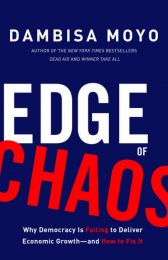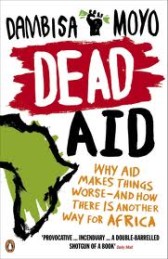Dambisa Moyo
Global Economist, Author, Macroeconomy and International Affairs Analyst
Dambisa Moyo Keynote Speaker Fee Fee range is for U.S. events, depending on location and organization type
$50,001 and above
Languages Spoken
English
Travels From
New York, USA
Dambisa Moyo Keynote Speaker Fee Fee range is for U.S. events, depending on location and organization type
$50,001 and above
Languages Spoken
English
Travels From
New York, USA
About Keynote Speaker Dambisa Moyo
About Speaker Dambisa Moyo…
Dr. Dambisa Moyo is a pre-eminent thinker, who influences key-decision makers in strategic investment and public policy. She is respected for her unique perspectives, her balance of contrarian thinking with measured judgement, and her ability to turn economic insight into investible ideas.
Dambisa has earned a strong reputation as a top-tier opinion former and trusted advisor on Macroeconomics, Geopolitics, Technology, and Millennial themes. She is a board member of 3M Company, Barclays Bank and Chevron. She holds a Doctorate in Economics from Oxford, a Masters from Harvard, and is recognized for fresh and innovative ideas as the Author of four 94) New York Times Bestselling Books:
- Edge of Chaos: Why Democracy is Failing to Deliver Economic Growth and How to Fix It (2018)
- Winner Take All: China’s Race for Resources and What it Means for the World (2012)
- How the West Was Lost: Fifty Years of Economic Folly and the Stark Choices Ahead (2011)
- Dead Aid: Why Aid is Not Working and How There is a Better Way for Africa (2009)
Dambisa was named to the list of Time Magazine’s 100 Most Influential People in the World; has published in the Financial Times, WSJ, Barrons, Harvard Business Review and has traveled to 80 countries, In her spare time, she runs marathons, practices Pilates, and is an amateur boxer.


